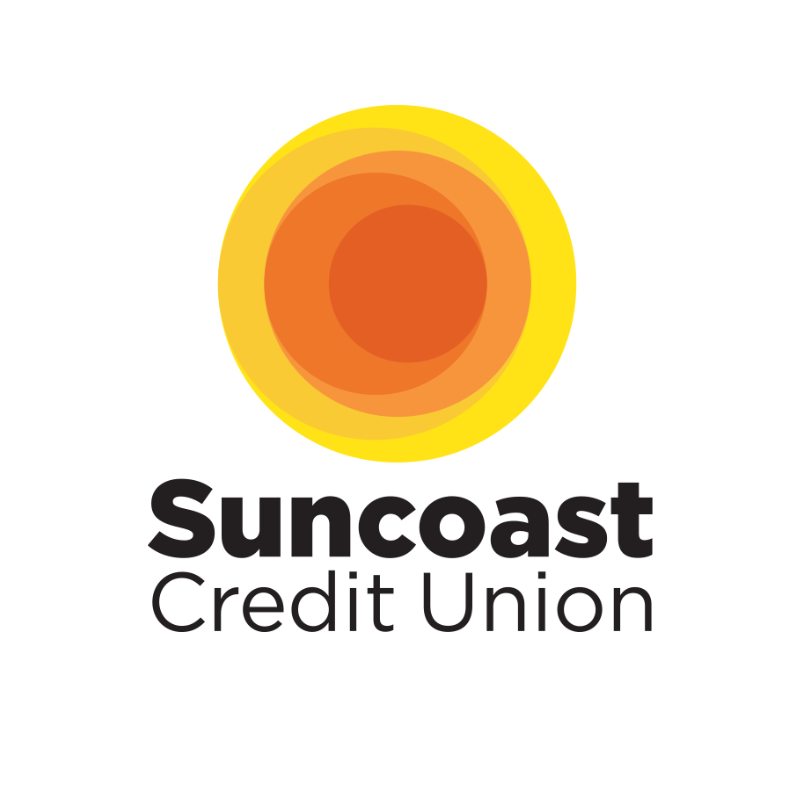At William H. Turner Tech and Continuing Education Center, your path to a rewarding career starts here. Whether you’re just getting started or building on existing skills, we’re here to help you gain the hands-on experience, industry knowledge, and confidence you need to succeed.
Explore flexible programs designed to fit your goals—from healthcare to skilled trades, and beyond. Our dedicated instructors and strong industry partnerships ensure you graduate ready to thrive in the real world.
This is more than an education. It’s a launchpad.

Post-secondary (Adult) Students

Financial Aid information is available to all prospective and currently enrolled students who qualify and enroll in an approved career and technical education training program. Financial aid consists of the Federal Pell Grant, Veteran’s Education Benefits, Florida Pre-Paid, and various community scholarships are available to eligible students and is used to help students meet their educational expenses.
Adult General Education (ABE, AAAE, Citizenship, ESOL, and GED Preparation) programs/courses are not specifically offered for job entry or advancement. Therefore, they are not accredited by the Council on Occupational Education (COE) and do not qualify for Title IV financial aid assistance.
The Financial Aid office is located in Building D (D-106).
Office Hours:
Monday, Tuesday, and Friday | 7:50 a.m. – 3:30 p.m.
Wednesday-Thursday | 7:50 a.m. – 8:50 p.m.
Financial Aid Advisors:
Sergio Marti | (305) 324-6070 Ext.7045
Sharon Gray | (305) 324-6070 Ext.7103
Government Financial Aid Sites

Miami-Dade County Public Schools’ Department of Mental Health Services coordinates District and community
resources in an effort to deliver evidence-based mental health service and treatment for M-DCPS students.
Mental health challenges among children and adolescents can bring serious changes to the way they typically learn, behave, or handle their emotions, which in turn can cause distress and challenges in getting through the day. M-DCPS is here to help.

Adult students must pay a flat rate of $30.00 (AGE fee) and $5.00 school ID per trimester and present some form of picture identification (ID) in order to be registered.
Students wishing to register for the Adult Education Program for an adult high school diploma, must be 16 years of age or older and withdrawn from K-12 school. (Exceptions would be high school students who are taking credit classes in order to meet graduation requirements).
Students are required to be tested as part of the registration process except the following:
- Students attending the regular high school program
- Show proof of a standard Florida high school diploma received from 2007
- Show proof of college degree
Registered high school students in need of completing credits in adult education, may enroll with written permission and Credit Verification Form from the high school principal only (Form# 4269). All students who register for Credit Recovery Courses must pay a $5.00 school ID fee each trimester.
All students must complete a Data Input Registration Form #3999.
Registration Information
The tuition rates and proof of residency requirements for students registering for Career/Technical Education (CTE) programs remain as indicated below:
- Students registering for CTE programs will still be required to prove Florida Residency to qualify for in-state tuition.
- The established registration procedures for verifying Florida Residency for post-secondary CTE students will remain in effect.
Adult Basic Education, GED, and ESOL:
- Students entering the Adult Basic Education (ABE) or General Education Development (GED) programs are required to take the Test for Adult Basic Education (TABE) for level placement.
- Students entering English for Speakers of Other Languages (ESOL) programs are required to take the language placement test (CASAS).
- Students entering vocational programs of 450 clock hours or more in length are required to take the Test for Adult Basic Education (TABE) upon entry into their program of study.
Proof of residency is no longer required for Adult General Education students (ESOL, ABE, AAAE, and GED), but students must present some form of picture identification (ID) in order to be registered.
School site personnel will use the following guidelines:
- Verify residency utilizing Form 7425
- Indicate residency status on Form 3999 and enter into Focus
- Require students to sign an affidavit affirming residency for in-state tuition, utilizing Form 6909 or Form 6910.
This process should also be followed for AGE students that can provide proof of Florida Residency for tuition purposes at the time of registration, should they decide to enroll in CTE programs in the future.
Intake staff should strictly adhere to the following guidelines when registering a student/applicant that is attempting to prove 12 consecutive months of Florida Residency.
UNACCEPTABLE DOCUMENTS:
- Birth certificates, Library Cards, Bank Statements, Shopping/Rental Club Cards, Hunting/Fishing Licenses, Concealed Weapon/Gun Permit.
- Acceptable documentation verifying in-state status is categorized as group A and group B below.
Group A
- Florida I.D. or Florida Driver’s License
- Vehicle Registration
- Proof of Homestead Exemption
- Proof of Permanent Home
- High School Transcript
- Voter’s Registration Card
- Proof of Full-Time Employment for past 12 months
Group B
- Certified Letter from Agency
- Certificate of Domicile
- Enrollment in an Educational Institution
- Lease Agreement
- Membership in Florida-based Organization
- Florida Incorporation (12 prior months)
- Professional or Occupational License
- Utility Bill
Note: One of the two pieces of documentation must be from group A.

Remote Learning Links
Remote Learning is available for Adult Basic Education, GED, and ESOL. Click on any of the tabs to the right to learn more.

Welcome to our Scholarships Information Hub — your go-to resource for exploring a wide range of scholarship opportunities!
Whether you’re a high school student planning for college or a current university student looking for financial support, this page provides the guidance and tools you need to discover, apply for, and secure scholarships that can help fund your education. Start your search today and take a step closer to achieving your academic goals!

EdFed
EdFed's new scholarship is for students enrolled in an Adult Education, Technical, or Vocational career program with Miami-Dade County Public Schools (M-DCPS).

Suncoast Credit Union/Ed Fund Scholarship
Personal loans can support your education and professional goals.

Youth Fair Scholarship
Multiple scholarships are awarded each year to students enrolling in a college, university or trade school.

2025-2026 Calendar coming soon!

Section 504 of the Rehabilitation Act of 1973 states that “No qualified handicapped person, shall on the basis of handicap, be excluded from participation in, be denied benefits of, or otherwise be subjected to discrimination under any program or activity which receives or benefits from federal assistance”. If it is determined that an individual is a qualified person with a disability, then the school will develop a 504 Accommodation Plan to ensure equal access to the instructional program.
The Student Services program offers services for students with special needs. Services for traditional post-secondary adult students with disabilities are provided in the regular adult/technical classroom. They are provided to students who self-identify and request accommodations. The accommodations are provided via the Section 504 Accommodation Plan for Post-Secondary Adult Vocational Education Students. Students may request an accommodation by speaking to an adult/vocational counselor.

Students entering the ESOL program are required to take the Comprehensive Adult Student Assessment Systems (CASAS) language placement test. Students entering the ABE or GED programs are required to take the Test for Adult Basic Education (TABE) for placement. Similarly, students entering Career and Technical programs consisting of 450 clock hours or more in length are also required to take the TABE upon entry into their program of study.
With the exception:
- Show proof of a standard Florida high school diploma received from 2007
- Show proof of college degree
The purpose of testing is to verify grade levels for individualized instruction and program completion. Additional assessments may also be administered to establish occupational program goals and objectives for students.
Adult Basic Education (TABE)
The TABE is used to establish a student’s grade level in Reading, Math, and Language. It is administered to all students entering vocational, GED and adult high school completion classes. If student’s test scores exceed the required academic level for their chosen course (GED or high school completion), no further testing is necessary. When students fall below the required level, they are placed in Adult Basic Education (ABE) classes and post-tested at the end of the school trimester. If the required level is achieved on the post-test, students can enter their programs. TABE score requirements for vocational students vary according to the occupational program. In most cases, where students score low on the TABE they are allowed to participate in the program while simultaneously undertaking remedial work to improve their academic levels.
Comprehensive Adult Student Assessment Systems (CASAS)
The CASAS test is administered to students entering English language classes. It consists of Reading and Listening components. After pre-testing, the lower of the two scores is used for placement in one of six ESOL (English for Speakers of Other Languages) levels ranging from Foundations to Advanced. After participating in ESOL classes for at least 70 hours and making adequate academic progress, students can take the post-test. The results of the post-test will determine whether they advance to the next level or continue for further instruction in the same level. Itemized test reports generated from the CASAS are also used by ESOL teachers to tailor instruction to students’ needs.
End of Course Exams (EOC)
High school students in the State of Florida are now required to take end, of course, exams (EOC) in certain subject areas for graduation purposes. In 2011, Algebra 1 (Next Generation Sunshine State Standards) was the first course to undergo the implementation of a statewide EOC assessment. Over the next few years, it was followed by Biology 1, Geometry, U.S. History, and Civics, all of which are aligned to the NGSSS (Next Generation Sunshine State Standards). Students taking any of the above courses should speak to the counselor about testing requirements.

